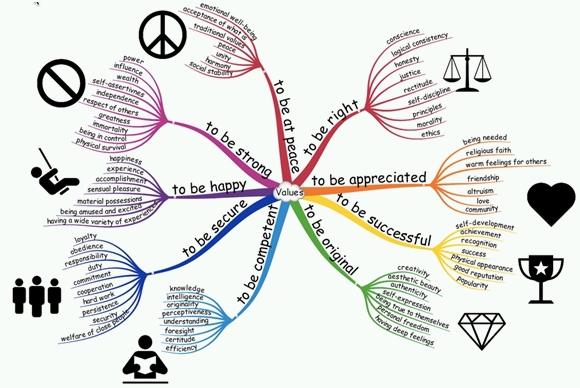The enneagram describes nine basic types of people and their corresponding styles of thinking, feeling, acting and relating. It explains why each of us behaves in a certain way and provides specific recommendations for our personal growth.
The enneagram system achieves this by enabling us to recognize our motivations, compulsions, patterns of behavior, and our strengths and weaknesses. It also describes how we interact with others. In doing so, it allows us a deeper understanding of them as well.
Study of the enneagram provides a powerful tool for self-understanding and development. As a typing system, it proves remarkably accurate. It permits us both to validate ourselves and feel compassion for others.
While the system describes each personality type from a psychological perspective, it also shows the way to transcend that personality. In this way, it ultimately enables us to unmask our ‘essence’, to find our true Self.
The exact origin of the system is unknown, but some researchers speculate it first surfaced centuries ago in secret Sufi orders, where it was taught orally. It was introduced to the West in the 1920s and arrived in the United States about 1960.
Brief Description of the Nine Types.
Type One: Perfecter. Strives for excellence; lives by
principles and ideals. Motivated by being correct.
Values integrity and hard work. When in decline,
judgmental and inflexible.
Type Two: Carer. Concerned about other people’s
needs; compassionate. Motivated by loving and helping
others. Values nurturing and friendliness. When in
decline, manipulates by flattery; denies self-seeking motives.
Type Three: Achiever. Ambitious and energetic.
Motivated by results and achievements. Values image
and status. When in decline, opportunistic and
controlled by fear of failure.
Type Four: Creator. Feels deeply; sensitive and
self-aware. Motivated by feeling unique and genuine.
Values emotional honesty and introspection. When in
decline, retreats to fantasy; self-absorbed and easily hurt.
Type Five: Observer. Analytical and open-minded.
Motivated by and knowledge and insight. Values
intellectual clarity and rational conclusions. When in
decline, rejects social life and may become paranoid.
Type Six: Affiliator. Loyal and respectful of
convention and authority. Motivated by belonging and
security. Values reliability and commitment. When in
decline, becomes indecisive and dependent.
Type Seven: Cheerer. Outgoing and versatile.
Motivated by enjoyment and sensation. Values optimism
and sociability. When in decline, becomes impetuous
and shallow.
Type Eight: Challenger. Action-oriented and
assertive. Motivated by being self-determined. Values
power and authority. When in decline, becomes
domineering and intimidating.
Type Nine: Accepter. Easygoing and patient. Motivated
by harmony and getting along with others. Values
emotional stability and acceptance. When in decline,
becomes passive and inactive.





